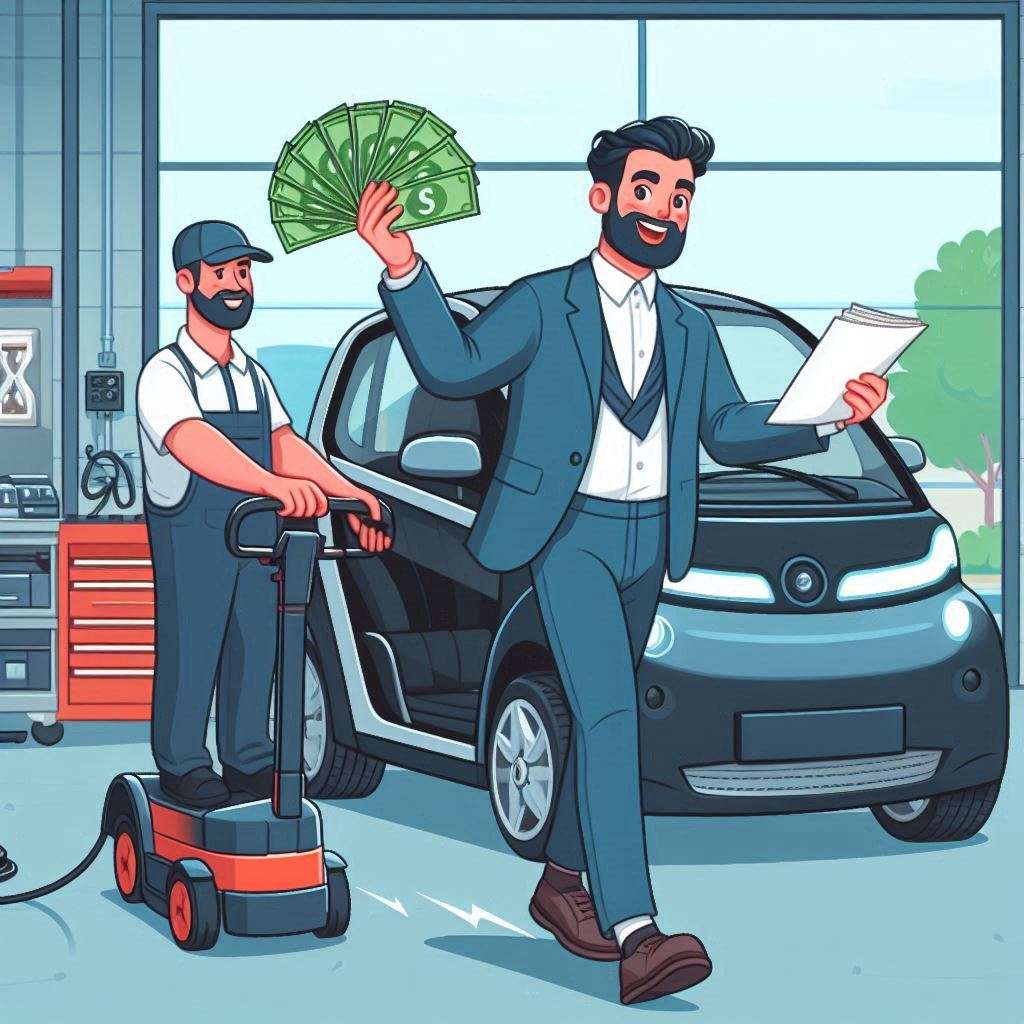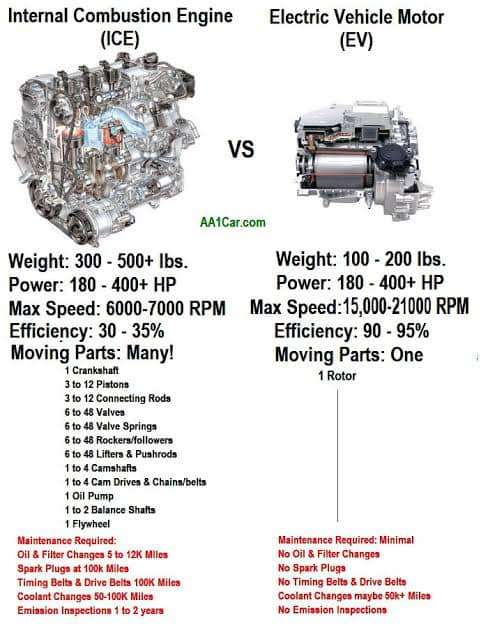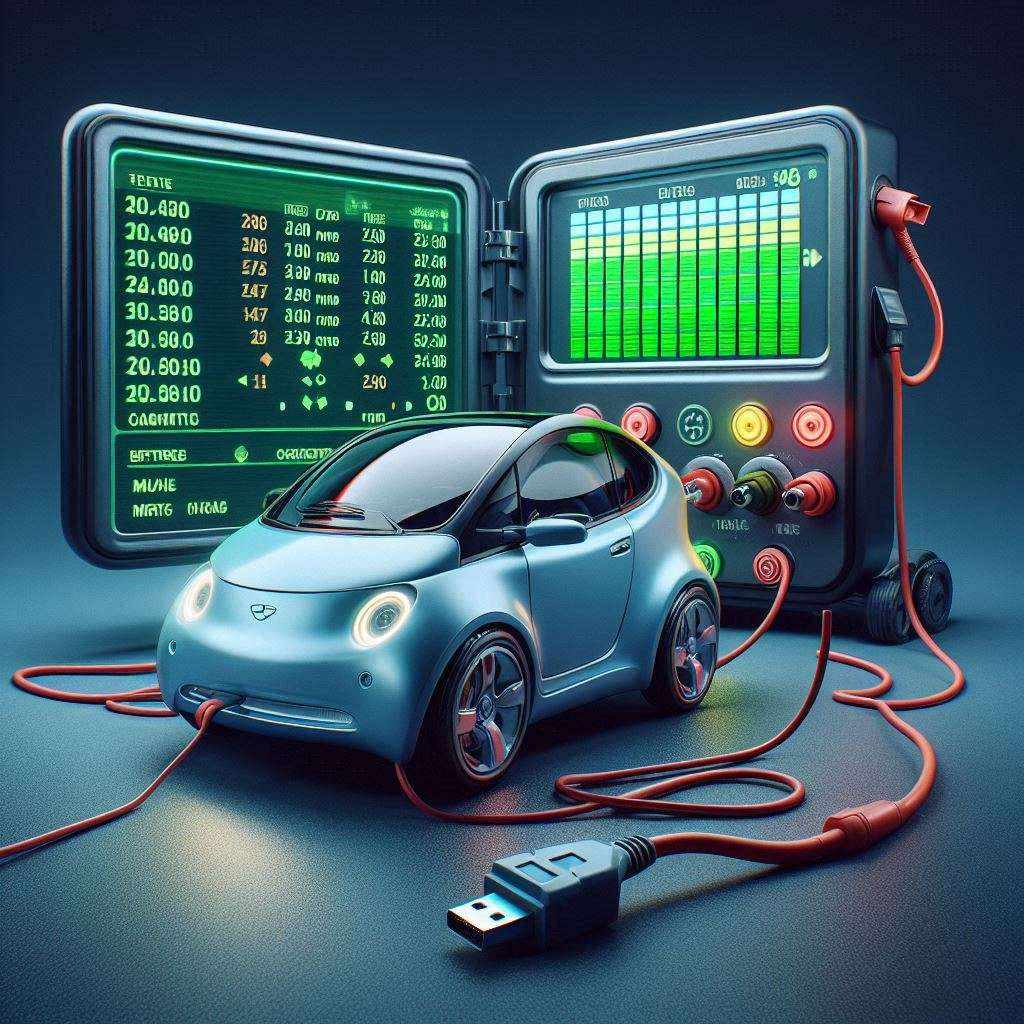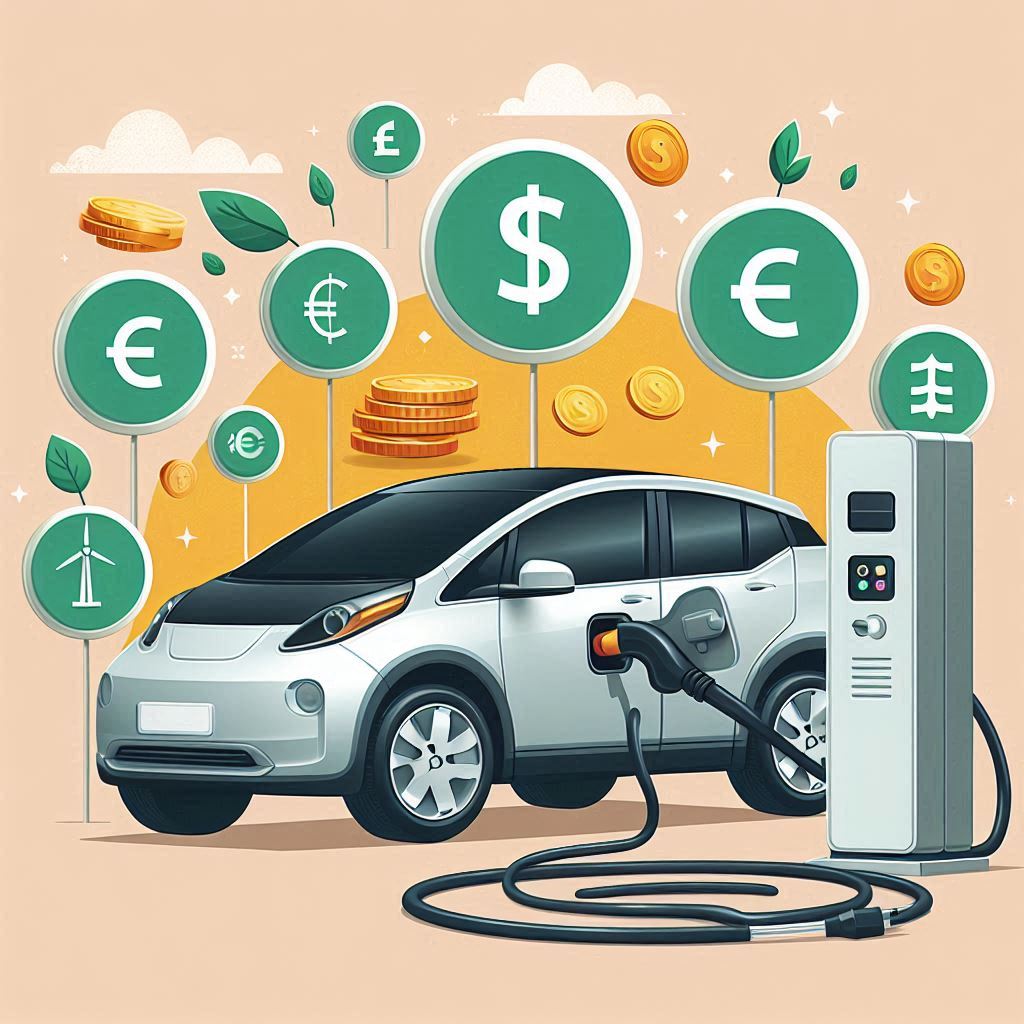As you consider joining the electric vehicle (EV) revolution, one crucial question may be on your mind: Are electric cars more expensive? While the initial costs of purchasing an EV might seem daunting, incentives and long-term savings can significantly offset the expense. Purchase prices continue to drop, as more competition, new models and better technology put downward pressure on manufacturer margins. Electric cars are experiencing their Ford Model T moment, as the EVs for the masses start to roll out. By replacing fuel with electricity, you’ll reap cost savings that add up over time. EVs require less maintenance, which means fewer trips to the mechanic and more money in your pocket. In this post, we’ll examine into the financial benefits and drawbacks of EV ownership, helping you make an informed decision about whether an EV is right for you.
Key Takeaways:
- Initial Costs: While the upfront cost of purchasing an Electric Vehicle (EV) may be higher than that of a traditional vehicle, incentives such as federal and state tax credits and rebates can offset much of the difference. Newer lower cost models are coming out all the time, and they’re getting on-par with petrol driven cars.
- Fuel Savings: EVs offer significant cost savings by replacing fuel with electricity, which is generally cheaper than petrol or diesel. This can lead to a substantial reduction in fuel costs over time.
- Maintenance Savings: EVs require less maintenance than traditional vehicles, with fewer moving parts and no oil changes needed. This can result in reduced maintenance costs over the life of the vehicle.
- Long-term Savings: When considering the total cost of ownership, EVs can provide significant long-term savings due to lower fuel and maintenance costs, making them a more economical choice in the long run.
- Environmental Benefits: As an added bonus, EVs produce zero tailpipe emissions, making them a more environmentally friendly option and contributing to a sustainable future.
Initial Investment
Your decision to own an Electric Vehicle (EV) begins with the initial investment, which includes the purchase price, incentives, and additional costs associated with owning an EV.
Purchase Price Comparison: EVs vs. Petrol-Powered Vehicles
Any comparison of EVs to petrol-powered vehicles must start with the purchase price. Up to now, EVs have been more expensive upfront, but the cost difference is narrowing very quickly. Price parity is just around the corner with all the new models becoming available now.
Incentives and Rebates: Government and Manufacturer Offers
Comparison shopping for EVs often reveals a range of incentives and rebates that can significantly reduce the purchase price.
A crucial aspect of these incentives is that they can vary by location, manufacturer, and even model. Government tax credits and cash back incentives can make a big difference. Some jusrisdictions offer several thousand off the purchase price, while others offer reduced registration fees, or other ongoing incentives. Some offer both. Manufacturers like Tesla also offer their own incentives, which can range from $1,000 to $5,000, either cashback, reduced finance rates, or straight up discounts. These incentives can greatly reduce the upfront cost of owning an EV, making it more competitive with petrol-powered vehicles. Competition is making these manufacturer incentives even better.
Fueling the Future
There’s no denying that electric vehicles (EVs) are gaining popularity, and for good reason. As you consider making the switch to an EV, it’s crucial to understand the economics behind fueling your new ride. As we look to answer our question: are electric cars more expensive? Fuel is going to be one of those onging costs we need to seriously consider.
Cost Savings from Replacing Fuel with Electricity
To put it simply, electricity is significantly cheaper than petrol or diesel. On average, charging your EV costs around 2-3 cents per kilometer, while driving a traditional vehicle costs around 15-18 cents per kilometer. If you drive 10,000km, that’s more than $1,000 savings per year on fuel costs alone, and another thousand bucks for each additional 10,000km.
The Impact of Electricity Rates on EV Ownership
The cost of electricity in your area can greatly impact your overall savings. If you live in an area with low electricity rates, your savings will be more substantial. Charging using off-peak rates when the electricity company has excess power and cheap rates can make a big difference. Having home solar panels will mean even bigger savings.
Future electricity rates will play a crucial role in determining the long-term cost-effectiveness of EV ownership. Projections are for renewable energy to reduce electricity generation costs in the short to medium term. As you consider purchasing an EV, be sure to research the electricity rates in your area to get a better understanding of your potential savings.
Projections based on my own driving and comparing my Kia EV6 against my Kia Sportage (diesel) have me saving over $300 a month or nearly $4,000 for the year on fuel alone. I always charge from solar (7c per kWh) or overnight EV rate (8c per kWh) when I’m not on a road trip.


Maintenance Matters
Now, let’s look into the world of maintenance, where EVs truly shine. As you’ll soon discover, owning an electric vehicle can lead to significant cost savings over time. Maintenance costs are going to help us answer: are electric cars more expensive?
Reduced Maintenance Costs: Fewer Moving Parts, Less Wear and Tear
Ripping away the complexities of traditional internal combustion engines, EVs boast fewer moving parts, resulting in less wear and tear on your vehicle. This translates to lower maintenance costs for you, with estimates suggesting a 35% reduction in maintenance expenses compared to gasoline-powered cars.
My personal experience is that servicing my EV can save up to 75% of the cost compared to my previous vehicles.
Extended Lifespan of EV Components: Batteries and Beyond
Moving beyond the engine, EV components like batteries, electric motors, and regenerative braking systems are designed to last longer, reducing the need for frequent replacements. In fact, many EV manufacturers warranty their batteries for 8-10 years or up to 100,000 miles.
Extended lifespan of EV components means you’ll spend less on repairs and replacements over time. For instance, a study by the National Renewable Energy Laboratory found that EV batteries can retain up to 90% of their capacity after 100,000 miles, making them a reliable and long-lasting component of your vehicle. This not only saves you money but also reduces electronic waste and minimizes the environmental impact of manufacturing new parts.
Battery Durability and Replacement Costs
Hold on to your wallet, because the battery durability of an EV is a significant factor in its long-term value. With proper maintenance, most EV batteries will last at least 10-15 years before “needing” replacement. I say “needing” because it may be quite viable to drive the car for several more years without having to actually replace the battery.
Battery replacement costs are decreasing rapidly. In 2010, the cost of replacing an EV battery was around $1,000 per kilowatt-hour. Today, that cost has dropped to around $137 per kilowatt-hour, making it a much more affordable option. As battery technologies mature and production increases, these prices are expected to drop even further.
Many manufacturers are now offering excellent warranties on their batteries, providing you with added peace of mind. As you consider the long-term value of owning an EV, remember that the cost savings from replacing fuel with electricity and reduced maintenance costs will add up over time, making your investment a wise one.


Charging Infrastructure
To fully appreciate the question: are electric cars more expensive? It’s crucial to understand the charging infrastructure that supports your vehicle.
Public Charging Networks: Convenience and Cost
Any EV owner will likely rely on public charging networks at some point, whether it’s during a road trip or when you need a quick top-up. These networks, such as Chargefox or Evie, offer convenient charging options, often with membership programs that reduce costs. On average, public charging will cost about $10 per 100km, which is about $6 cheaper than petrol (based on $2 per litre and 8 litres per 100km).
Home Charging Options: Installation and Operating Expenses
Cost is a crucial consideration when it comes to home charging options. You’ll need to install a 240-volt Level 2 charger, which can range from $500 to $2,000, depending on the brand and features. Additionally, you’ll need to factor in the cost of electricity, which can add up to $500 per year, assuming an average electricity rate of 12 cents per kilowatt-hour. Your rate per 100km can drop to less than $2 by using home charging. That’s 1/5 of the cost of public charging and less than 1/8 the cost of petrol (and the most expensive of the public charging options). Note: The most expensive public charging options can be on par with petrol prices, but most people will use these options sparingly. As competition increases, costs will inevitably fall.
Understanding the installation process and operating expenses of home charging options is vital. Most states offer rebates for the installation of solar panels and a home charger? Electricity providers often offer special time-of-use rates for EV owners, which can significantly reduce your electricity costs. By choosing the right home charging option, you can save thousands of dollars per year compared to relying solely on public charging networks.
Summing up
We’ve seen the various factors that influence the economics of owning an EV. Initial costs, incentives, and long-term savings come with switching to an electric vehicle. Replacing fuel with electricity can lead to significant cost savings, not to mention the reduced maintenance costs that come with owning an EV. By considering these factors, you’re now better equipped to make an informed decision about whether an EV is right for you and your wallet.
So: Are electric cars more expensive?
Have we answered our question? I believe we have. Electric cars might be a little more expensive to buy, at least for now, but ongoing costs will soon repay that difference. One way to offset the initial purchase price might be to lease a vehicle and recoup the savings before having to pay for the whole vehicle.
FAQ
Q: What are the initial costs associated with owning an Electric Vehicle (EV)?
A: The initial costs of purchasing an EV can be higher than those of a traditional vehicle. However, many governments offer incentives such as tax credits, rebates, or exemptions from certain fees to encourage the adoption of EVs. Additionally, some states and utilities offer additional incentives, such as rebates or discounts on electricity rates. These incentives can help offset the higher upfront cost of an EV. Wider variety, increased competition, lower production costs and price cutting have all contributed to EV prices coming almost almost into line with petrol vehicles. It won’t be long until the prices reach parity.
Q: How do EVs save me money on fuel costs?
A: One of the biggest advantages of owning an EV is the significant cost savings from replacing fuel with electricity. Electricity is generally much cheaper than petrol, and EVs are highly efficient, converting more than 70% of the electrical energy from the grid to power the wheels. Petrol-powered vehicles only convert about 20%to 35% of the energy in fuel to power the wheels. Charging an EV can cost as little as $2 to$3 per 100km, while driving a petrol-powered vehicle can cost around $15 to $18 per 100km. This can result in significant savings over time, especially for drivers who drive a lot.
Q: How do EVs reduce maintenance costs?
A: EVs require significantly less maintenance than traditional vehicles. Electric motors have fewer moving parts than petrol engines, which means they are less prone to wear and tear. Additionally, EVs do not require oil changes, tune-ups, or replacement of spark plugs and air filters, which can save owners hundreds of dollars per year. EVs also tend to have regenerative braking systems, which capture much of the kinetic energy and convert it back into electricity, reducing wear on the brakes. According to a study by the automotive research firm, iSeeCars, EV owners can save an average of $1,200 per year on maintenance costs compared to owners of petrol-powered vehicles.


